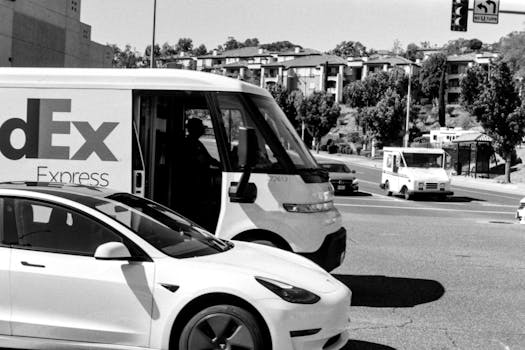
**
Rivian Delivery Slowdown: Trump Tariffs Cripple EV Startup, Threatening Tesla's Main Competitor
The electric vehicle (EV) landscape is facing a significant shake-up. Rivian, once touted as a major Tesla competitor and a darling of the investment world, is experiencing a substantial decline in vehicle deliveries, and a key factor contributing to this slowdown is the lingering impact of Trump-era tariffs on imported components. This news sends shockwaves through the burgeoning EV market, raising concerns about the long-term viability of Rivian and highlighting the complex challenges facing even the most promising EV startups.
The Impact of Trump Tariffs on Rivian's Supply Chain
Rivian, like many EV manufacturers, relies heavily on a global supply chain for crucial components. The Trump administration's tariffs, imposed on imported goods from China and other countries, have significantly increased the cost of these parts. This directly impacts Rivian's manufacturing costs, forcing them to either absorb the increased expenses or pass them on to consumers, making their vehicles less competitive in the already fiercely contested EV market.
Rising Costs and Diminished Profit Margins
The increased cost of components, primarily batteries and other crucial electronic systems, has severely squeezed Rivian's profit margins. This makes it difficult for them to maintain their ambitious production targets and compete effectively against established players like Tesla, who have more diversified supply chains and greater economies of scale. The rising prices also make Rivian's vehicles less appealing to consumers, especially in a market increasingly sensitive to pricing.
- Higher Battery Costs: A substantial portion of Rivian's manufacturing costs are attributed to batteries, a key component significantly impacted by tariffs.
- Increased Shipping Costs: Tariffs have led to increased shipping costs, adding further strain to Rivian's already tight margins.
- Supply Chain Disruptions: The complexities of navigating global trade restrictions have also caused supply chain disruptions, impacting production schedules and delivery timelines.
Declining Deliveries: A Warning Sign for the EV Industry?
Rivian's recent delivery figures paint a concerning picture. The company has significantly missed its projected delivery targets for the past two quarters, a stark contrast to its initial promising projections. This decline raises serious questions about its long-term financial sustainability and its ability to compete effectively in the increasingly saturated EV market. Analysts are now scrutinizing Rivian's strategy and forecasting a more challenging future.
Competition from Established Players
The intense competition within the EV industry further exacerbates Rivian's challenges. Tesla, with its established brand recognition, extensive Supercharger network, and economies of scale, remains the dominant player. Other major automotive manufacturers are also aggressively expanding their EV offerings, adding to the pressure on Rivian. The combination of these factors creates a perfect storm, threatening Rivian's ability to establish itself as a major contender.
Navigating the Geopolitical Landscape: A Complex Challenge
Rivian's predicament highlights the inherent risks associated with relying on a global supply chain in an era of geopolitical uncertainty. The complexities of international trade, including tariffs, sanctions, and trade wars, pose significant challenges for EV manufacturers. The ability to effectively navigate this complex landscape and diversify their supply chains is crucial for long-term survival.
Diversification and Supply Chain Resilience
Rivian is now under pressure to diversify its supply chain and reduce its dependence on imported components. This involves securing alternative suppliers, investing in domestic manufacturing, and exploring innovative sourcing strategies. This undertaking, however, requires significant investment and time, making it a challenging task in the short term.
The Future of Rivian: Can it Overcome the Challenges?
Rivian's future remains uncertain. While the company has demonstrated innovative engineering capabilities with its R1T pickup truck and R1S SUV, overcoming the current challenges will require a multi-faceted approach. This includes addressing the impact of tariffs, diversifying its supply chain, enhancing its cost-effectiveness, and strengthening its brand presence in a competitive market. The coming months will be critical in determining whether Rivian can navigate these obstacles and fulfill its promise as a leading EV manufacturer. The success or failure of Rivian will also provide valuable lessons for other emerging EV companies, underscoring the importance of robust supply chain management and strategic diversification in a rapidly evolving industry.
Keywords: Rivian, Tesla, electric vehicles, EV, EV market, Trump tariffs, supply chain, delivery slowdown, automotive industry, competition, profit margins, battery costs, import tariffs, global supply chain, geopolitical risks, Rivian R1T, Rivian R1S, EV manufacturing, EV sales, China tariffs.




















